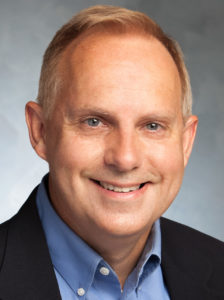Texas Gov. Greg Abbott recently announced his support for a Parent’s Bill of Rights, a new but oh-so-familiar offering from conservatives that seeks to bar librarians and teachers in public schools from offering access to facts and stories that stand outside a white evangelical mainstream, that as Brian Lopez reports, reckon honestly with “race, gender and sex.”
State legislatures nationwide have moved for legislation banning Critical Race Theory, a chimera which is not actually to be found in public schools, and to protect white students from feeling discomfort or from being offended by the teaching of race or “certain discriminatory concepts.” In addition to a powerful concern about race, Lopez suggests that white conservatives also are revealing their discomfort about sexuality and gender identity. Even widely read and widely taught texts depicting homosexuality or transgender identities are being condemned as pornography, with dismissal and even legal action threatened against teachers, librarians or school districts making such material available to students.

Greg Garrett
The desire to stifle texts that don’t reflect our values is not a new one, and it is not limited purely to conservatives. The Adventures of Huckleberry Finn has been condemned by those on the right for vulgarity and by those on the left for its use of the “N word.” Recently conservatives successfully pushed a school board in Missouri to ban The Bluest Eye, an acknowledged masterpiece by Nobel Prize-winner Toni Morrison, but Pulitzer-Prize winner To Kill a Mockingbird by Harper Lee — like The Bluest Eye on the American Library Association’s list of top 10 most-challenged books — has been the target of progressive challenges for featuring a white savior character, and for its white author’s depiction of Black characters.
Still, as Deborah Caldwell-Stone, director of the American Library Association’s Office for Intellectual Freedom told Axios, this current tidal wave of challenges from parents and legislators comes almost exclusively from the right. “I’ve worked for this office for 20 years, and we’ve never had this volume of challenges come in such a short time.”
One of my colleagues at Baylor University, D. Thomas Hanks, a man renowned as much for his gentleness as for his transformative teaching, told me 30 years ago something that I never have forgotten: The job of a good university, Tom said, is to offend its students. Knowing him, and having talked teaching and pedagogy with him now for more than 30 years, I know full well that he wasn’t advocating challenge and discomfort for the pure sake of offense; he wasn’t talking about the metaphorical equivalent of scrawling obscenities on a wall.
What my friend understood, both as a Baylor master teacher and as an ordained Baptist minister, is that we cannot live into our full humanity until we are exposed to and accept the full humanity of others, an experience that is often jarring because it slams us against the bars of our cultural cages.
“We cannot live into our full humanity until we are exposed to and accept the full humanity of others.”
When I teach Toni Morrison (and, also, Harper Lee), I am confronting myself and my students with a record of prejudices and institutional injustices that challenge our sense of justice and mercy. Whenever I read or learn about the hard beauty of another human life, I have to widen my perception of what it means to be human, to reshape my own limited definition of normative, and to remind myself anew that every person is an equally beloved child of God.
Ultimately what we are talking about here is much more than secular lawmakers dictating that one type of human experience is to be taught; they are also arguing that one religious tradition is permitted to decide what normative human experience should be, and that is always a danger.
Historian Kristin du Mez, whose bestselling Jesus and John Wayne has invited white evangelicals to sit with their discomfort at the tradition’s history of toxic masculinity and racism, told me: “No one group has a perfect grasp on God’s truth. So we should always be working to learn from those who are different from us, who read the Scriptures in different ways, who are attentive to things that we may neglect or dismiss. To me, this is part of what it means to be part of the larger body of Christ. It requires humility, but it is also a source of great joy.”
“This discomfort is a necessary piece of my moral education.”
When I sit and wrestle with a challenging text, whether that text is James Baldwin’s The Fire Next Time or with Jesus’ oft-baffling parables, while I may feel confronted and uncomfortable — I am the white devil named at Elijah Muhammad’s dinner table in Baldwin’s book, the rich man refusing the beggar a seat at my table in the parable — this discomfort is a necessary piece of my moral education.
It is only human that we fear change. But it is also only through discomfort and offense that I am nudged forward into growth, that I begin to creep tentatively beyond the limited horizon inside which I’ve been living.
Robert P. Jones wrote a few weeks back in praise of this sort of white discomfort. Despite our desire to protect our children, “we intuitively know that some forms of discomfort, such as feeling bad about ourselves when we’ve done something wrong, help us assume responsibility for our mistakes and spur us to make things right. Sitting with, owning this kind of discomfort is an essential part of forming a strong moral core and becoming a mature adult.”
This is purest truth: I’ve observed at home, in the classroom, and in churches across the country that connections with other lives, with other ways of loving, and with other ways of believing are necessary for our moral growth, and because of that, discomfort should not be feared.
“Ignorance is never a laudable spiritual practice.”
If offense is the aim of a good university (and, I would argue, of a meaningful faith tradition), if personal discomfort is to be encouraged in the service of personal transformation, then initiatives threatening teachers and librarians and inviting parents to protect children from God’s diverse and beautiful reality are indeed a tragedy. More: They are a sin.
Ignorance is never a laudable spiritual practice, and failure to engage with disconcerting truths leaves us mired in our imperfect present, stuck with the daily iniquities and inequities. Perhaps most importantly, fear of difference leaves us as tiny stoppered human beings who cannot fully live or love or imagine how we or the world might be better because all we know is what we know.
So here’s to offense rightly applied, to discomfort faithfully endured. May we be strong and courageous, and may we reject lives lived in the fear of being confronted with uncomfortable truths.
Greg Garrett is an award-winning professor at Baylor University. One of America’s leading voices on religion and culture, he is the author of more than two dozen books, most recently In Conversation: Rowan Williams and Greg Garrett and A Long, Long Way: Hollywood’s Unfinished Journey from Racism to Reconciliation. He is currently administering a research grant on racism from the Eula Mae and John Baugh Foundation and writing a book on racial mythologies for Oxford University Press. Greg is a seminary-trained lay preacher in the Episcopal Church and canon theologian at the American Cathedral of the Holy Trinity in Paris. He lives in Austin with his wife, Jeanie, and their two daughters.
Related articles:
It’s time to stop the insanity that is killing public education | Opinion by Mark Wingfield
Who’s behind the nationwide attacks on local school boards over Critical Race Theory?


